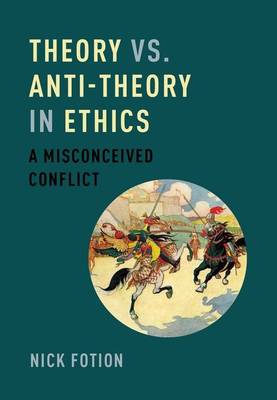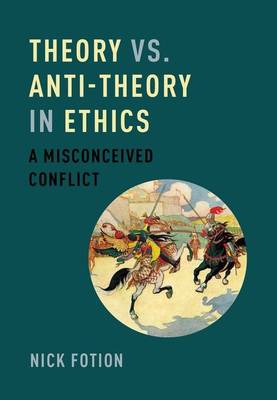
En raison d'une grêve chez bpost, votre commande pourrait être retardée. Vous avez besoin d’un livre rapidement ? Nos magasins vous accueillent à bras ouverts !
- Retrait gratuit dans votre magasin Club
- 7.000.000 titres dans notre catalogue
- Payer en toute sécurité
- Toujours un magasin près de chez vous
En raison de la grêve chez bpost, votre commande pourrait être retardée. Vous avez besoin d’un livre rapidement ? Nos magasins vous accueillent à bras ouverts !
- Retrait gratuit dans votre magasin Club
- 7.000.0000 titres dans notre catalogue
- Payer en toute sécurité
- Toujours un magasin près de chez vous
125,45 €
+ 250 points
Description
This book presents a broad and new theory of theory formation in ethics. There are many existing theories, and more could be generated, but most thinkers of theory formation have a narrow view of what a theory of ethics should be like. They favor certain kinds of grand theories that generate various ethical rules and principles. In fact these grand theories allegedly do so much work that they give the appearance of being super-theories (or strong theories). Many theory creators think that it is possible to create strong theories, and that they themselves have created such a theory. Anti-theorists scoff at these claims. In effect, then, the argument between the two sides is not one of theory versus anti-theory but of grand or strong theory versus anti-grand or strong theory. Nick Fotion argues that once a broader view of theory is accepted, it is easier to see that there really is no serious conflict between theorists and anti-theorists. In principle, both sides, if they overcome their addiction to thinking in terms of grand, strong theory formation, can accept a role for theories in ethics. Theories in ethics can be either grand or local in nature. Provided theory creators and users don't expect theories to performs all kinds of impossible tasks (e.g., to deal with all of our ethical problems and be so fully justified that only one theory can be accepted as being correct) it is easier to accept them. It is also easier to accept the idea that a theorist might very well appeal to more than one theory to help him or her deal with whatever ethical issues bother.
Spécifications
Parties prenantes
- Auteur(s) :
- Editeur:
Contenu
- Nombre de pages :
- 344
- Langue:
- Anglais
Caractéristiques
- EAN:
- 9780199373529
- Date de parution :
- 17-06-14
- Format:
- Livre relié
- Format numérique:
- Genaaid
- Dimensions :
- 213 mm x 147 mm
- Poids :
- 484 g

Les avis
Nous publions uniquement les avis qui respectent les conditions requises. Consultez nos conditions pour les avis.






